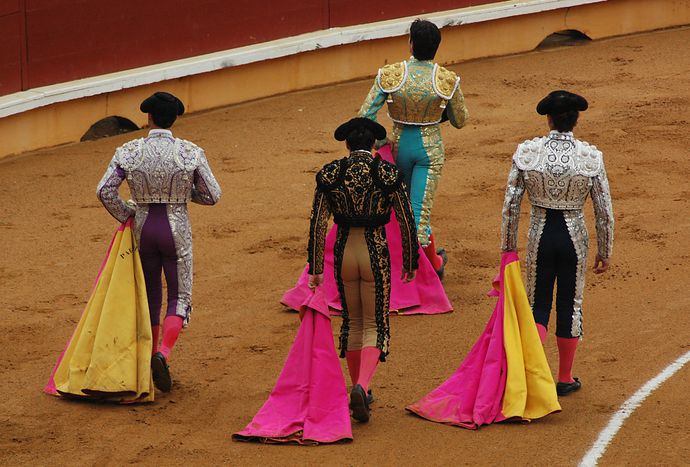
Catalonia vs bulls: prohibition of Spanishness?
Published on
Translation by:
Tash FrostWhen the Catalan parliament voted against bullfighting in the community on 28 July, the bullfighting world grouped together to defend their interests. The political opposition has announced that it will promote a law in congress to avoid further rulings of this type. The ‘Plataforma Prou!
’, promoter of the popular legislative initiative that gave a place to the vote, announced that they would not give up in their fight to free bulls from martyrdom
Unless, in May 2011, the Catalan parliament does not pass the modification of the 2003 animal protection law (la Ley de Protección de los Animales) article, which prohibits their torture except in the case of bulls from 1 January 2012, they will no longer be celebrating bullfights in Catalonia. Until this date arrives, the battle between those that support what is known as a ‘fiesta’ and those that wish for its prohibition to be enforced will be fierce. The former have already created the table of the bull. On 1 August, they presented a manifesto in all of bullrings, including those of France and Portugal.
Eduardo Martín Peñate, the rancher and managing director of table of the bull, explained the essence of the document on the same day on Spanish national radio (RNE). 'This manifesto hopes to protest for the liberty of the right to work and have a business. Also, we demand that our festival is not used in politics and that everyone remembers what the running of the bulls means to the world of art and culture.'
Nationalism against bullfighting
Due to the current political context, the Catalan parliament's decision has been interpreted in many circles as something more than a pass in favour of the protection of animals. After four years of reflection the constitutional tribunal presented its determination about the statute of Catalonia in July. Various changes in the document are recognised that had been approved before by the autonomous community parliament, the citizens in referendum and by the general state courts of Spain. One of the most controversial aspects is the conclusion that the constitution 'does not recognise any other than the Spanish nation'. The Catalans responded by protesting on 10 July in Barcelona. Between one million protestors (according to police figures) and one and a half million (according to the organisers) held up banners such as 'Catalonia is a nation' or 'We decide'. More than 100 foreign correspondents came to Barcelona to learn more about the result.
'The theme of Catalan identity has provoked this surge forward. The decision of the statute, that has not satisfied those that produced it, has also been used as support for the demands for autonomy. Politicians have not duly considered this. They have simply used opportunism to take a swipe at the most important symbol of the country, the bull. We shouldn’t forget that when you train a bull, in whatever latitude of the world, it's an image which is identified with Spain. This is a small scale of revenge that the Catalan people have used against the Spanish nation,' continues Martín Peñate in his RNE speech on the possible influence between the ruling of the statute and the vote.
Businesses in the sector
The valuation of the economic loss for businesses in the bullfighting sector, in the decline of the autonomous community in recent years, according to the Platform for the Diffusion of the Fiesta is 300 million euros. This includes the value of the monumental de Barcelona bullring and which will cease to charge for entrance. The Catalan ranchers will not be seen to be especially affected given that their cattle are used chiefly for the bull runs (‘los correbous’ in Catalan). Precisely, Platform Prou! (‘Enough!’ in Catalan) also has as one of their objectives the prohibition of popular fiestas in the south of Catalonia, in which the bulls have to run with balls of fire on their horns or are dragged through the streets with cords attached to their horns. The finality of these acts, equal to the running of the bulls, is the delight of the spectators. .
The convergence and union party (CiU) promoted a law to regulate the practice of the bull run, which would limit its celebration to traditional and would place limits on the maltreatment of bulls. The regulation was to be voted on 28 July, the same day that the abolition of the running of the bulls was voted on. Without doubt, the Popular Party brought it to the statutory rights council, the Catalan consultive body, to ask for their constitutionality. As a consequence, this proposal is, for the moment, paralysed.
Images: main (cc) pmorgan; in-text (cc) Alexandra Guerson/ courtesy of Flickr
Translated from Cataluña contra los toros: ¿la prohibición de lo español?



